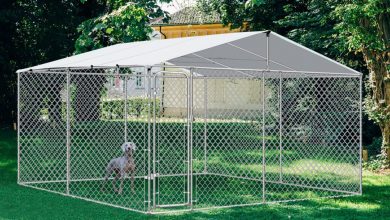Why Does My Dog Knead And Bite Blanket

1. Introduction
Dogs are amazing animals, and their behavior can often be puzzling. One of the most common yet mysterious behaviors is when a dog kneads and bites blankets. This behavior is often seen in puppies, but can also be observed in adult dogs as well. In this article, we will explore why dogs knead and bite blankets, as well as other potential reasons for this behavior.
2. What is Kneading?
Kneading is a behavior that is commonly seen in cats and dogs. It involves pushing their paws against a surface in an alternating pattern, usually while lying on their side or back. Kneading is often associated with comfort and contentment, as it is usually done when the animal is relaxed or happy.
3. Why Do Dogs Knead?
The exact reason why dogs knead is unknown, but there are several theories about why they may do it. One theory suggests that the behavior is instinctual and related to nursing behavior from puppies to their mothers. When puppies are nursing from their mother’s teat, they push against her body with their paws to stimulate milk flow and increase the flow of milk into their mouths.
Another theory suggests that kneading is an instinctive way for dogs to mark their territory with scent glands located between their paw pads. By pushing against objects with their paws, they can leave behind their scent and mark the object as theirs.
4. What Does Biting Blankets Mean?
Biting blankets can have many different meanings depending on the context in which it occurs. It could mean that the dog is anxious or stressed and trying to soothe themselves by chewing on something soft and comforting like a blanket or pillow. It could also be a sign of boredom or frustration if the dog has nothing else to do or chew on other than the blanket. Biting could also be a sign of aggression if the dog feels threatened or provoked by something in its environment.
5. Why Does My Dog Bite Blankets?
If your dog is biting blankets, it could be due to any number of reasons including anxiety, boredom, frustration, or aggression. If your dog appears to be anxious or stressed when biting blankets, it could be a sign that they are trying to self-soothe by chewing on something soft and comforting like a blanket or pillow. If your dog appears bored or frustrated when biting blankets, it could mean that they don’t have anything else to do or chew on other than the blanket. If your dog appears aggressive when biting blankets, it could mean that they feel threatened or provoked by something in its environment and are responding accordingly.
6. Other Reasons for Blanket Biting
In addition to anxiety, boredom, frustration, and aggression, there are other potential reasons why your dog might bite blankets such as teething pain or oral discomfort from dental problems such as plaque buildup or broken teeth/roots. Your dog may also simply enjoy the taste of fabric if they find it tasty enough to chew on! Lastly, some dogs may simply enjoy playing with fabrics like blankets due to its texture and color which can provide them with hours of entertainment!
7. Is It Normal For Dogs to Bite Blankets?
Yes, it is normal for dogs to bite blankets as long as they aren’t exhibiting signs of aggression towards people or other animals while doing so! As long as your pup isn’t displaying any signs of distress such as excessive panting or pacing while biting blankets then there’s no need for concern! If you notice any signs of distress then consult your vet immediately as this could indicate an underlying issue such as anxiety or dental problems needing attention!
8. How Can I Stop My Dog From Biting Blankets?
If your pup’s blanket biting becomes problematic then you may want to consider taking steps to stop this behavior such as providing plenty of mental stimulation with interactive toys and puzzles; making sure your pup gets enough physical exercise; providing plenty of chew toys; redirecting your pup’s attention away from the blanket; providing positive reinforcement when appropriate; ensuring your pup has access to plenty of water; making sure your pup has access to comfortable beds/blankets; and consulting with a professional trainer if necessary!
9. Conclusion
Kneading and biting blankets can be normal behaviors for some dogs but can also indicate anxiety or other issues if these behaviors become excessive or problematic for your pup! Understanding why your pup does these behaviors can help you develop a plan for how best to manage them in order to ensure your pup’s health and happiness!
10. FAQs
Q: Is kneading normal behavior for dogs?
A: Yes! Kneading is a normal behavior often associated with comfort and contentment in dogs! It may also be related to nursing behavior from puppies towards their mothers or used as an instinctive way for dogs to mark territory with scent glands located between their paw pads!
Q: What does biting blankets mean?
A: Biting blankets can mean different things depending on context – it could mean that the dog is anxious/stressed trying to self-soothe by chewing on something soft/comforting; bored/frustrated without anything else to do/chew; aggressive feeling threatened/provoked by something in its environment; teething pain/oral discomfort from dental problems; enjoying the taste of fabric; playing with fabric due its texture/color; etc!
Q: How can I stop my dog from biting blankets?
A: You can take steps such as providing plenty of mental stimulation with interactive toys/puzzles; making sure your pup gets enough physical exercise; providing plenty of chew toys; redirecting attention away from blanket; providing positive reinforcement when appropriate; ensuring access to plenty of water; making sure access to comfortable beds/blankets; consulting professional trainer if necessary!
11 . Resources
• PetMD – Why Do Dogs Knead? https://www.petmd.com/dog/behavior/why-do-dogs-knead
• The Spruce Pets – Why Do Dogs Bite Blankets? https://www.thesprucepets.com/why-do-dogs-bite-blankets-4687343
• Vetstreet – Understanding Dog Behavior https://www.vetstreet.com/care/understanding-dog-behavior


